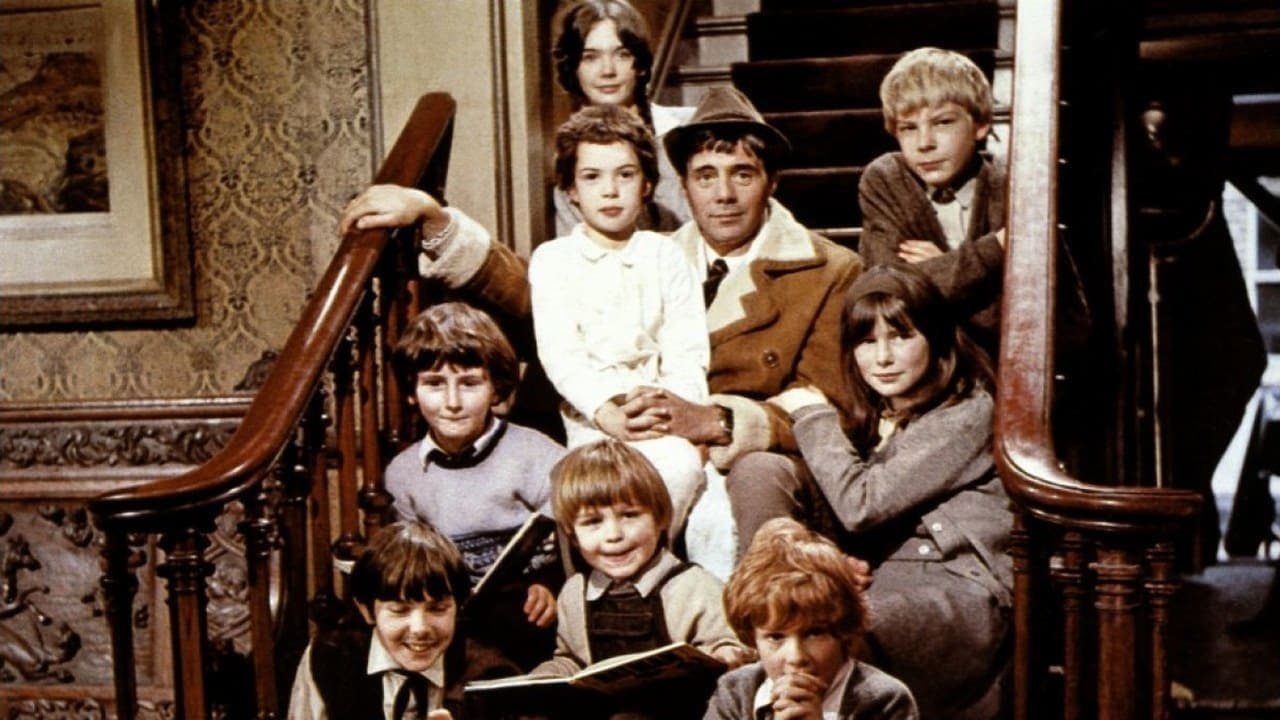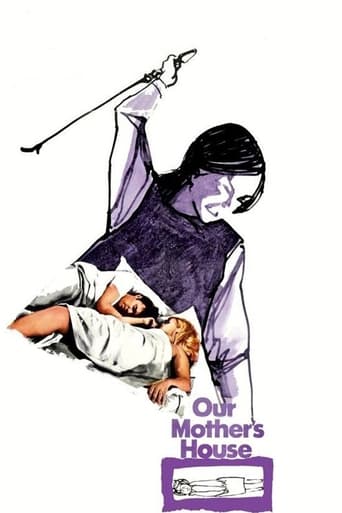

When their ill mother dies, the Hook children bury her at night in their garden and keep on living as if everything were normal, so that they will be able to stay together as a family. The oldest of the seven children, Elsa, takes command but she does listen to their thoughts, especially those of the oldest brother. They work together well but not without some disagreements. To get advice from their late mother, the family gathers together for "Mother Time" and Elsa channels their mother's advice to her siblings. The children work pretty well together to do a good job of managing the house, finances, school, cleaning, shopping, cooking etc. After a while, their mother's husband, Charlie Hook, appears and he takes charge, with varying reactions from the seven children.
... View MoreHyperbole aside this is one of the finest genre films to come out of the UK in the 1960's; a fascinating and entirely compelling examination of a clannish, insular family whose behavior becomes increasingly erratic after a bereavement causes their already fragile existence to spiral into murkier depths of unsupervised eccentricity. Things take a proverbial turn for the worst after the arrival of, Dirk Bogarde's uber spiv character, whose motives for accepting the role of caring patriarch appear to be far from altruistic. Jack Clayton's delightfully unusual 'Our Mother's House' remains to this day a deeply penetrating, unflinching examination of child psychosis, and makes for entirely essential, and dare I say it, creepy viewing. And it would be entirely remiss not to mention the sterling acting from the youthful, ensemble cast; with a particularly affecting performance from the luminous, Pamela 'Legend of hell House' Franklin.
... View MoreThere are half a dozen or so children in this English household, ranging in age from about five to about seventeen. Their mother dies and they bury her in the garden. They get along on their own, cashing her pension checks and hoarding the four hundred pounds she left for a rainy day. "Mother's house" is a shack in the yard where the children retire to hold séances with Mom so she can tell them what to do.This can't go on, of course. Mothers don't just disappear. A teacher inquires at the house, her questions abrupt and demanding, and at the last minute the situation is saved by the appearance of their estranged father, Dirk Bogarde. (Or not saved, depending on your point of view.) Bogarde deserted their mother years ago and he's never seen the kids before, but he takes over the house, plays games with both the kids and the horses, and everyone seems to be having a jolly good time. Mother's house is neglected. So is the Big House. So are the financial circumstances, as Bogarde taps happily into the nest egg, drinks gallons of booze every day, and has his girl friends stay over at night, much to the kids' chagrin.When the money begins to dry up, Bogarde instigates a mortgage on the house. On top of that he begins to weary of the responsibility of caring for the little brats, even Diana (Pamela Franklin), who is old enough to appreciate his masculinity and has developed an adolescent affection for him.On a particularly bad hair day, he sells all the furniture and tchotchkas in Mother's house, tells them he hates them all, that everything including the house belongs to him, that there mother was nothing more than a whore, and that they were all conceived not by him but by a variety of her guests.Pretty rotten of him, but that's about as far as he gets before Pamela Franklin bashes in his head with a poker. They sadly come to their senses, pack their bags, and leave in the rain. Where did he say that orphanage was, again? These stories of kids trying sub rosa to grow up on their own seem to pop up with irregular frequency. I'm not sure of all the titles but I think they include "The Railway Children," "Don't Tell Mom, The Babysitter's Dead," "The Little Girl Who Lives Down the Lane," and a few others. Others are simulacra: "Secret Ceremony," "Lord of the Flies," "Walkabout." This example has a good performance by Dirk Bogarde as the miscreant Daddy, and some surprisingly effective acting from some of the children, especially (but not limited to) the older two girls -- Margaret Brooks and Pamela Franklin. Generally speaking, children in movies should be struck until they ring, like gongs. But when they deliver, they're awe inspiring. How does a kid who is only, say, eleven years old learn to do a decent imitation of another eleven-year-old human being? The performances are all fine but the story itself is a little sluggish. It's worth watching once, for the reasons mentioned, but probably not worth owning.
... View MoreThis was on TCM (Turner Classic Movies) a few days ago, and after all the great comments I saw about this movie, I didn't hesitate to tape it on DVD. It wasn't what I had expected in the least, and until Dirk Bogarde turns up, it's quite an average movie. But it definitely does improve after that.The general gist of the film is that seven children who fear the orphanage bury their mother in the garden after she dies of illness, so that no one will find out. For the next 30 minutes, the film revolves around how the children survive on their own, and how they support each other (one of these methods being 'mothertime', where they have séances in the garden as they try to contact their dead mother). Then Dirk Bogarde turns up, and he claims to be their father. Most of the children take to him immediately, but the eldest doesn't, and this leads to all sorts of complications for the family, leading up to the climax (which is actually the best thing about this film).The film, when you look at it closely, is, in fact, quite good. It's got a good storyline, good acting, and great scenery. If you're looking for a horror flick, look elsewhere, but if you're looking for a subtle, well acted melodrama, then look no further!Definitely worth a viewing!
... View More